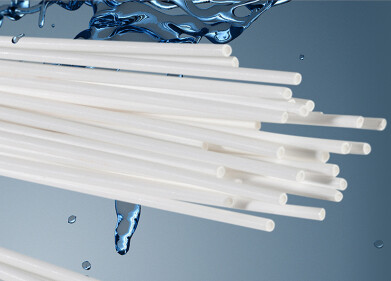Waste management
Is Recycling Nylon Good for the Planet?
Jul 25 2016
Nylon is an everyday substance in our lives – it’s used in packaging, clothing and carpets, as well as for industry-specific purposes like fishing nets. In fact, it’s estimated that over 600,000 tonnes of fishing equipment is dumped into the sea every year, with nylon fishing nets comprising part of this total.
With 10% of the debris in the ocean contributed nylon products, it’s clearly a growing problem. Despite this, not many companies adopt nylon-recycling policies. Why not?
The problem with nylon recycling
First and foremost, recycling nylon is often a complicated and expensive process.
Unlike other recyclable materials like glass and metal, nylon is not melted down at incredibly high temperatures. The lower heat used in melting nylon means that some bacteria and other contaminants can persist in the substance after combustion. As a result, thorough cleaning of the material prior to melting it is vital, which makes the practice more unattractive, time-consuming and expensive (especially to fishermen who drag their nets along the ocean floor).
At the same time, manufacturing new plastics and polymers is relatively cheap, meaning it’s often more financially attractive for companies to simply discard old waste and purchase new materials than recycle.
For these reasons, recycling nylon is not quite as commonplace a practice as determining the value of certain other waste materials, such as metals, plastics and glass.
What needs to be done
Despite its unattractive nature, recycling must become the norm rather than the exception if we are to maximise the resources of our planet and minimise our carbon footprint. Extracting the utmost from every single product, before recycling and reusing materials as much as possible, should be the business model for every company – not just for nylon.
“What would change the recycling scene is if we were charged per pound for all waste,” suggested Stephen Johnston, associate professor of plastic engineering at UMass Lowell. “Or if companies had to take back part of what they produced.”
Leading lights of industry
While recycling as standard is still in its infancy, several forward-thinking companies have already set out their stall to operate as environmentally friendly as they can. Among others, some of the most ecological companies with regard to nylon include:
- Bureo, a California-based start-up dedicated to making skateboards and sunglasses from recycled fishing nets
- Aquafil, an Italian carpet manufacturer who recycle the nylon used in their carpets to create new materials which they call Econyl
- Speedo, who use Econyl in over 50 of their products
- Outerknown, an LA outerwear firm founded by pro-surfer Kelly Slater which uses Econyl in its range
- Patagonia, another outerwear company which uses recycled nylon in more than 50 products, including 100% chemically recycled nylon in its Torrentshell jackets
Of course, nylon is just one substance and one facet of a huge industry. But as David Stover of Bureo points out, if we all adopted an approach like these companies are doing to all materials, waste could be reduced drastically.
“This is really the future of manufacturing,” he commented. “We have to start reassessing waste as value, and Patagonia gets that. Nylon is just one material in our lives; imagine if we did this for all the materials we use.”
Events
May 11 2025 Vienna, Austria
May 18 2025 Algiers, Algeria
23rd International Water Management Exhibition
May 20 2025 Prague, Czech Republic
Singapore International Water Week Spotlight 2025
Jun 23 2025 Singapore
Jun 25 2025 Sao Paulo, Brasil














